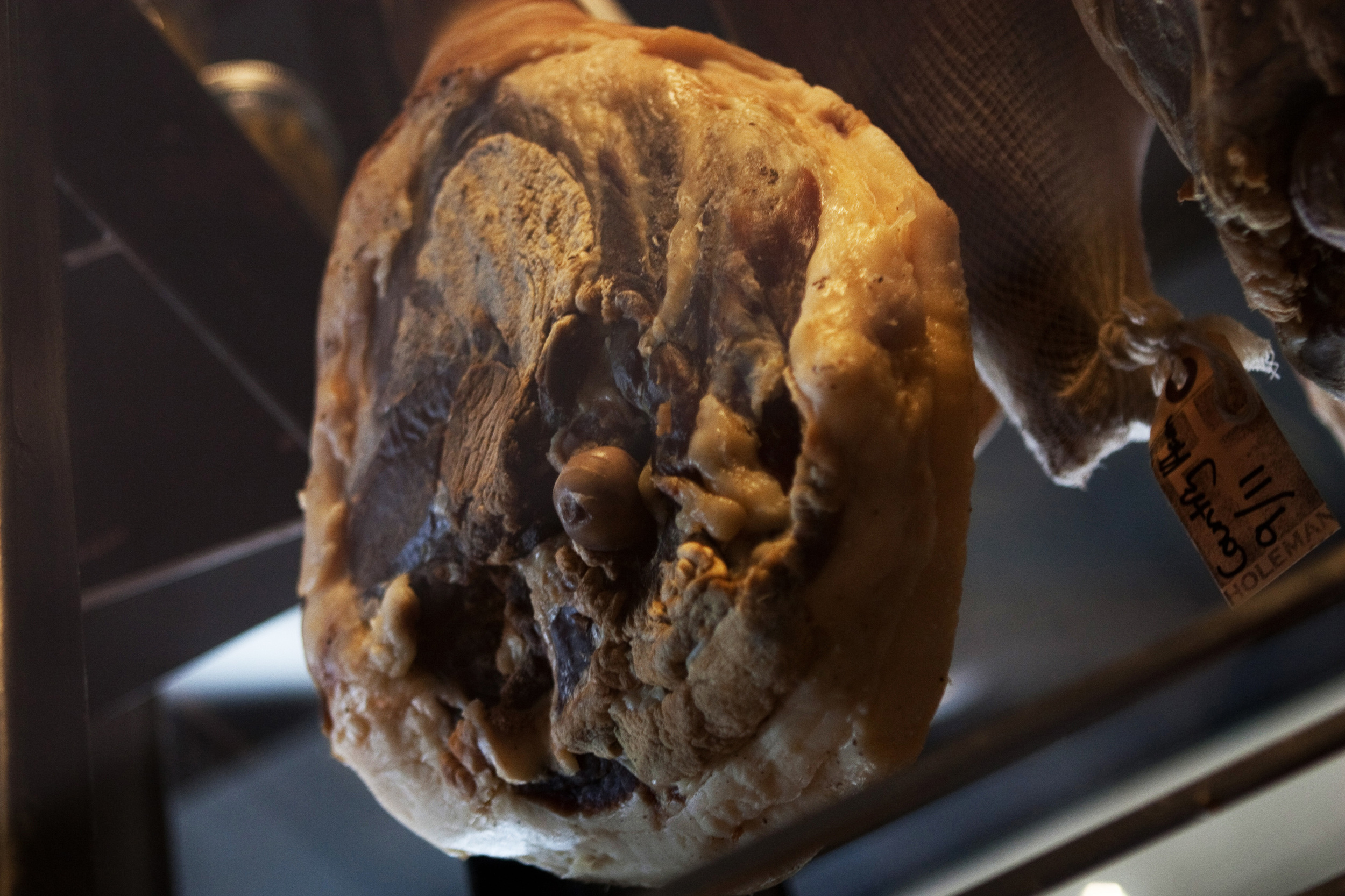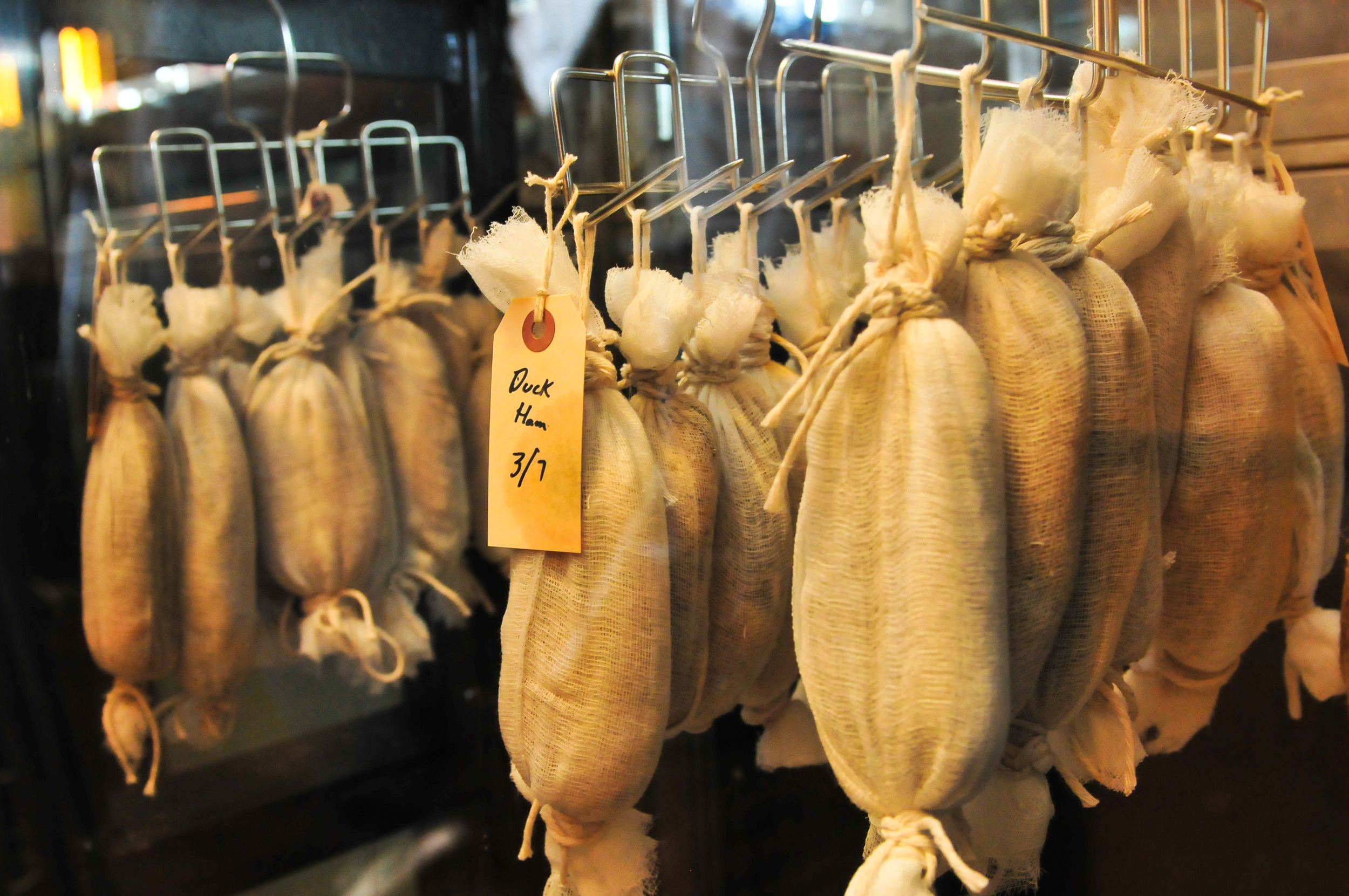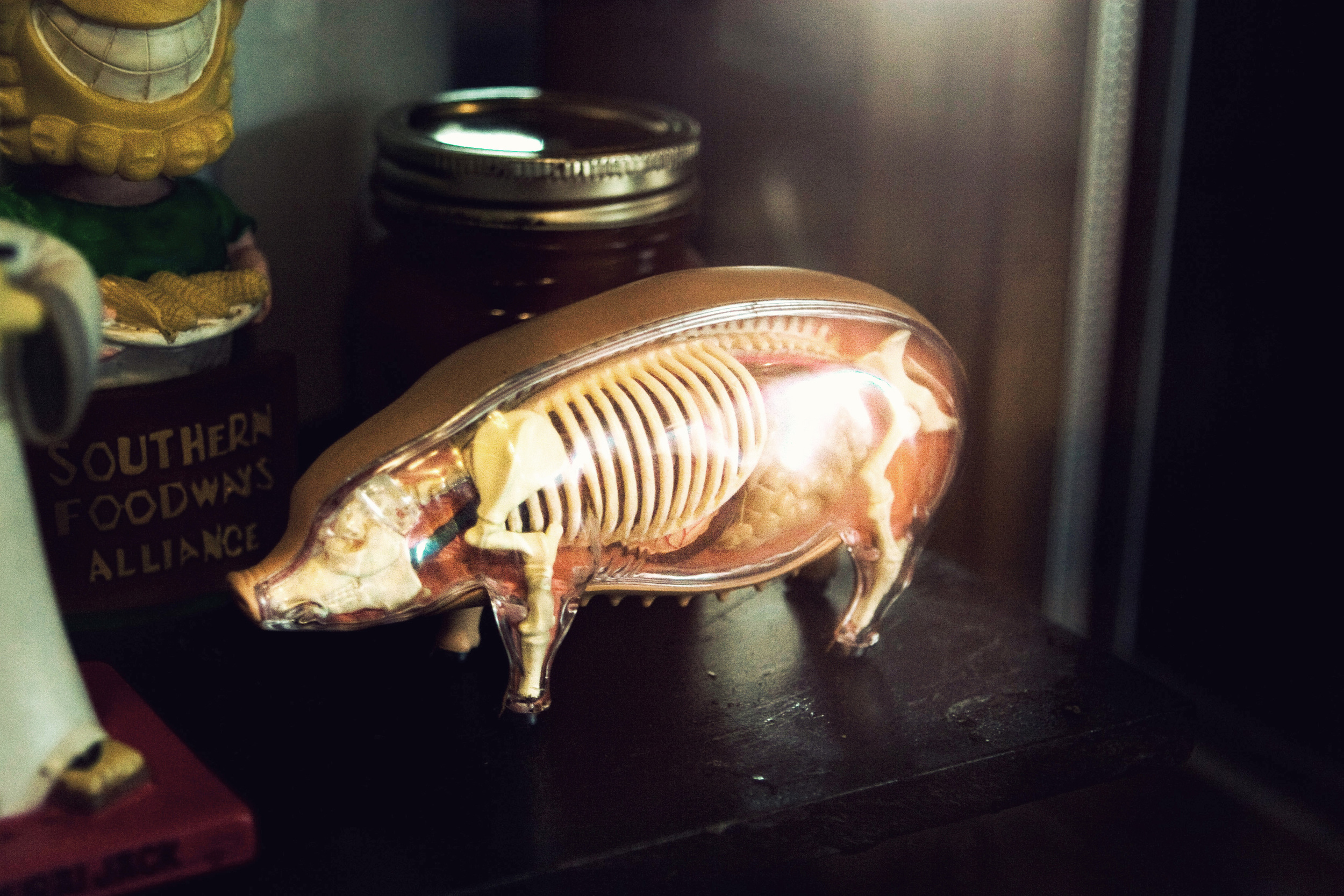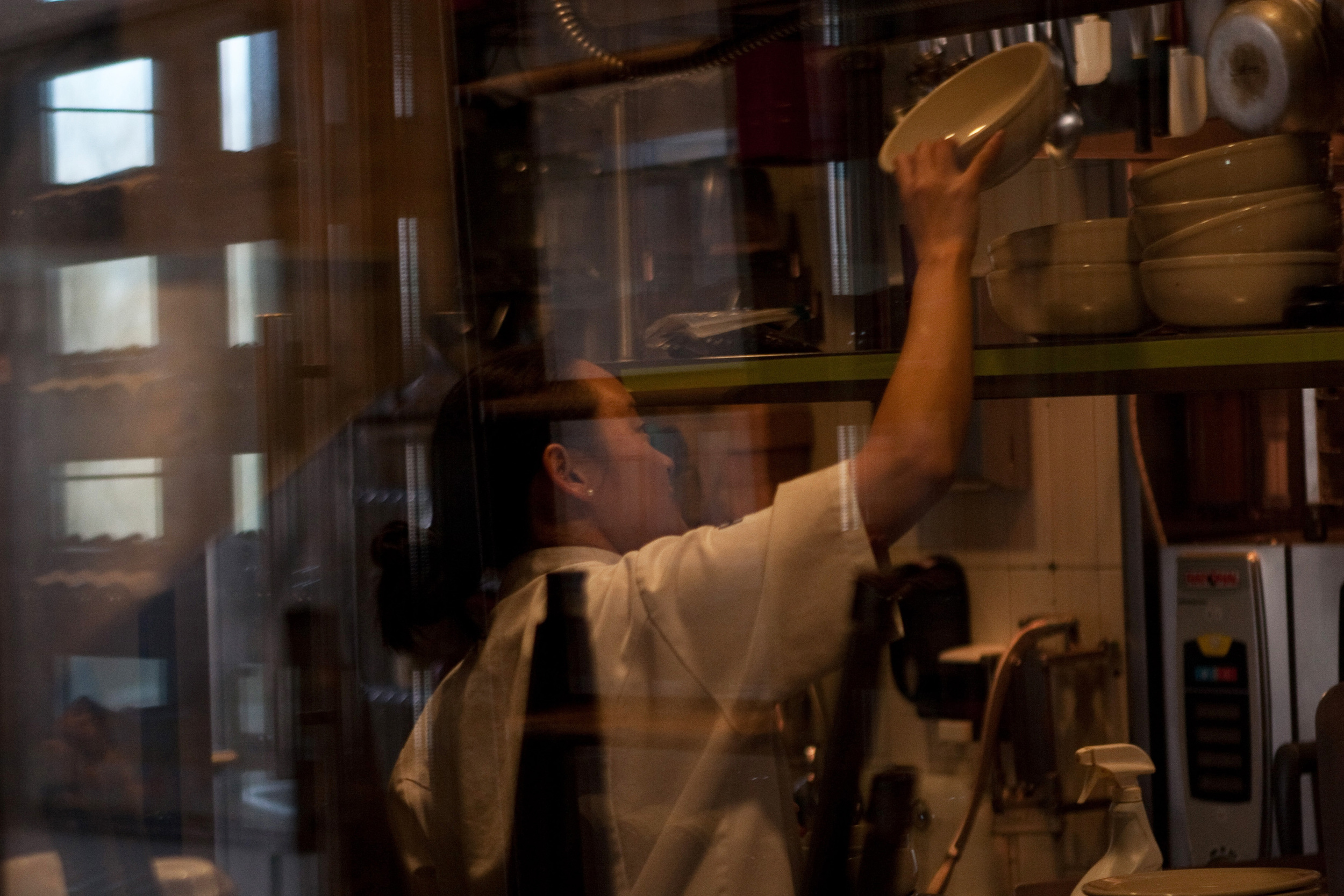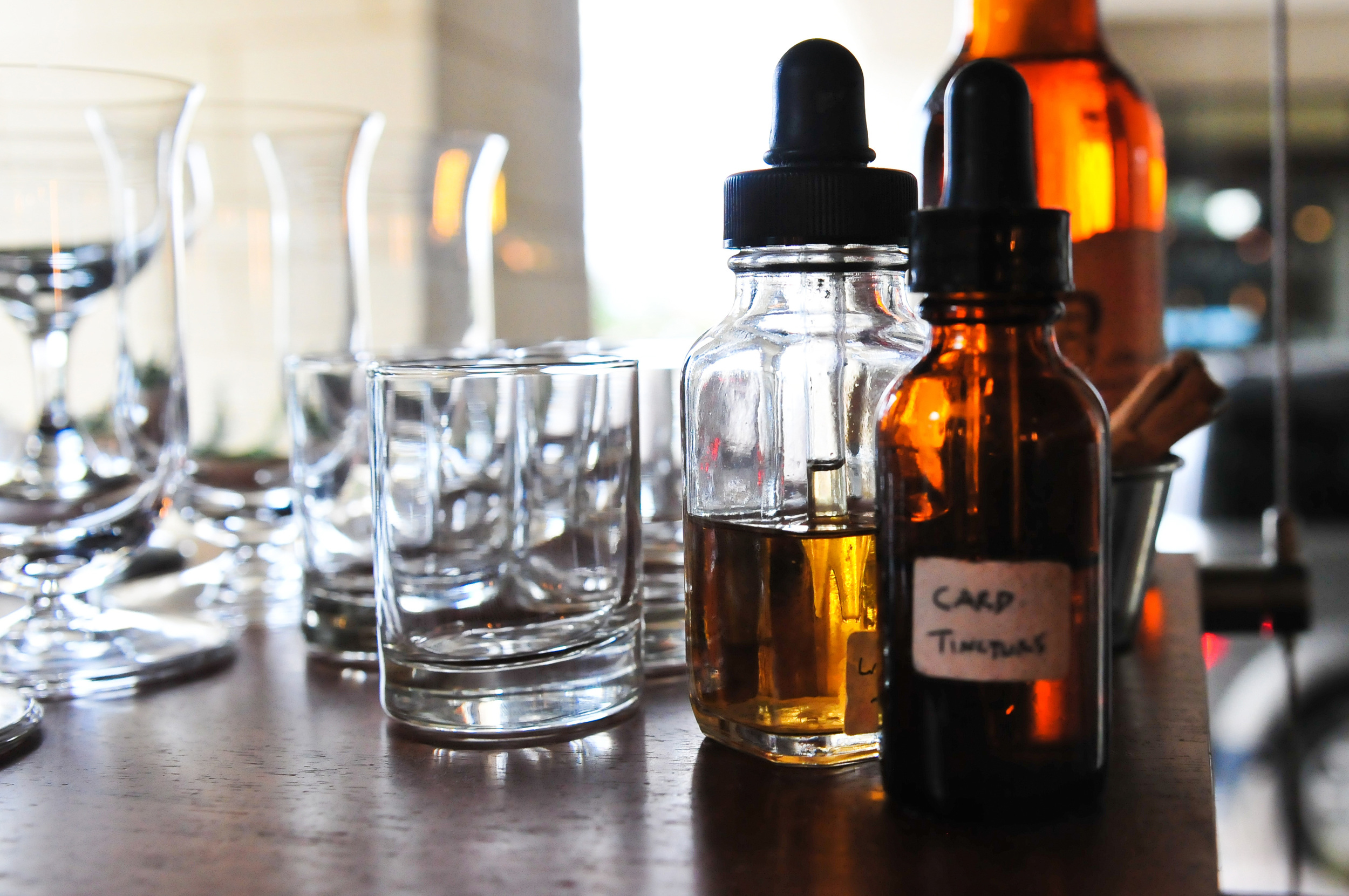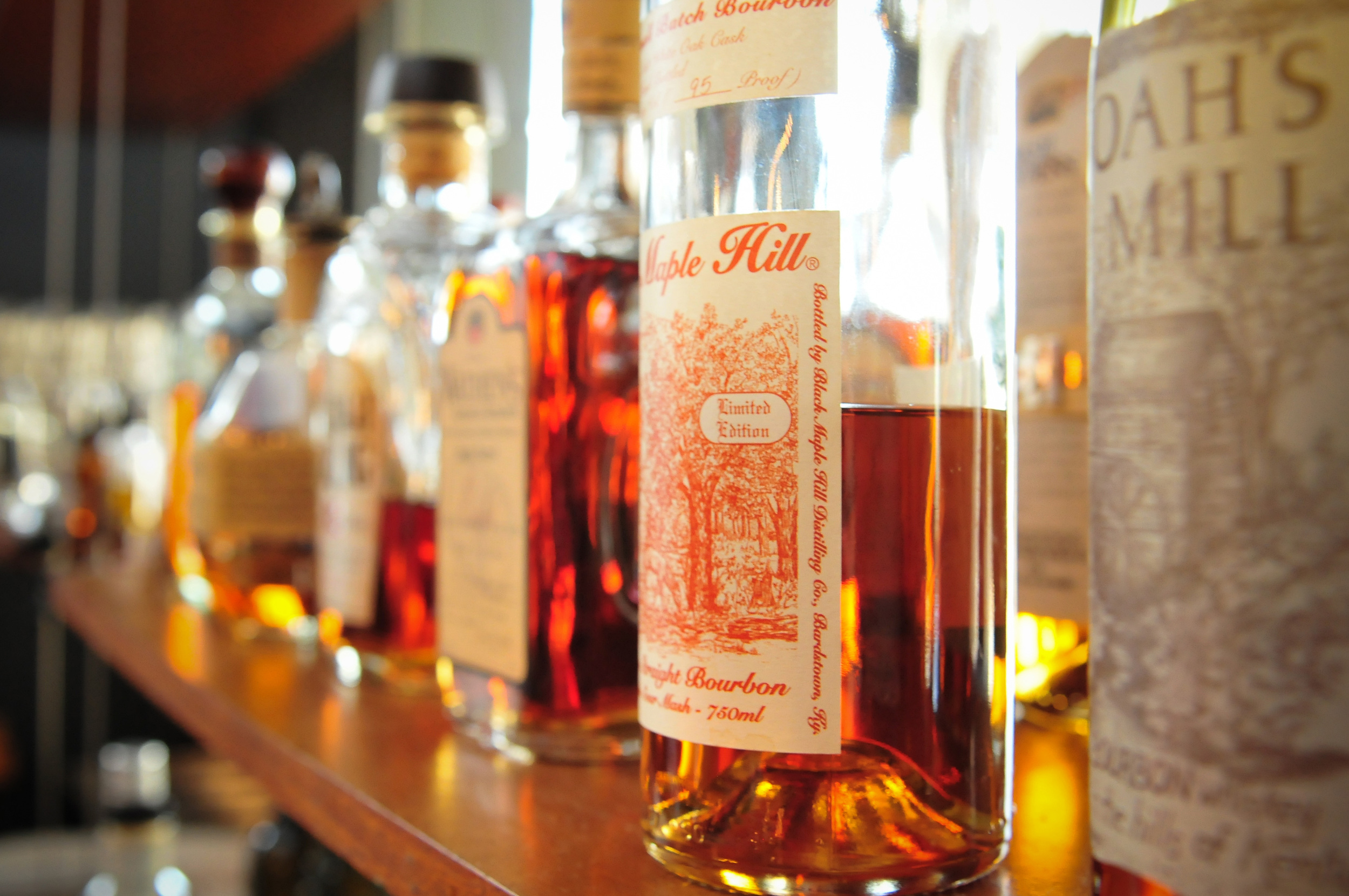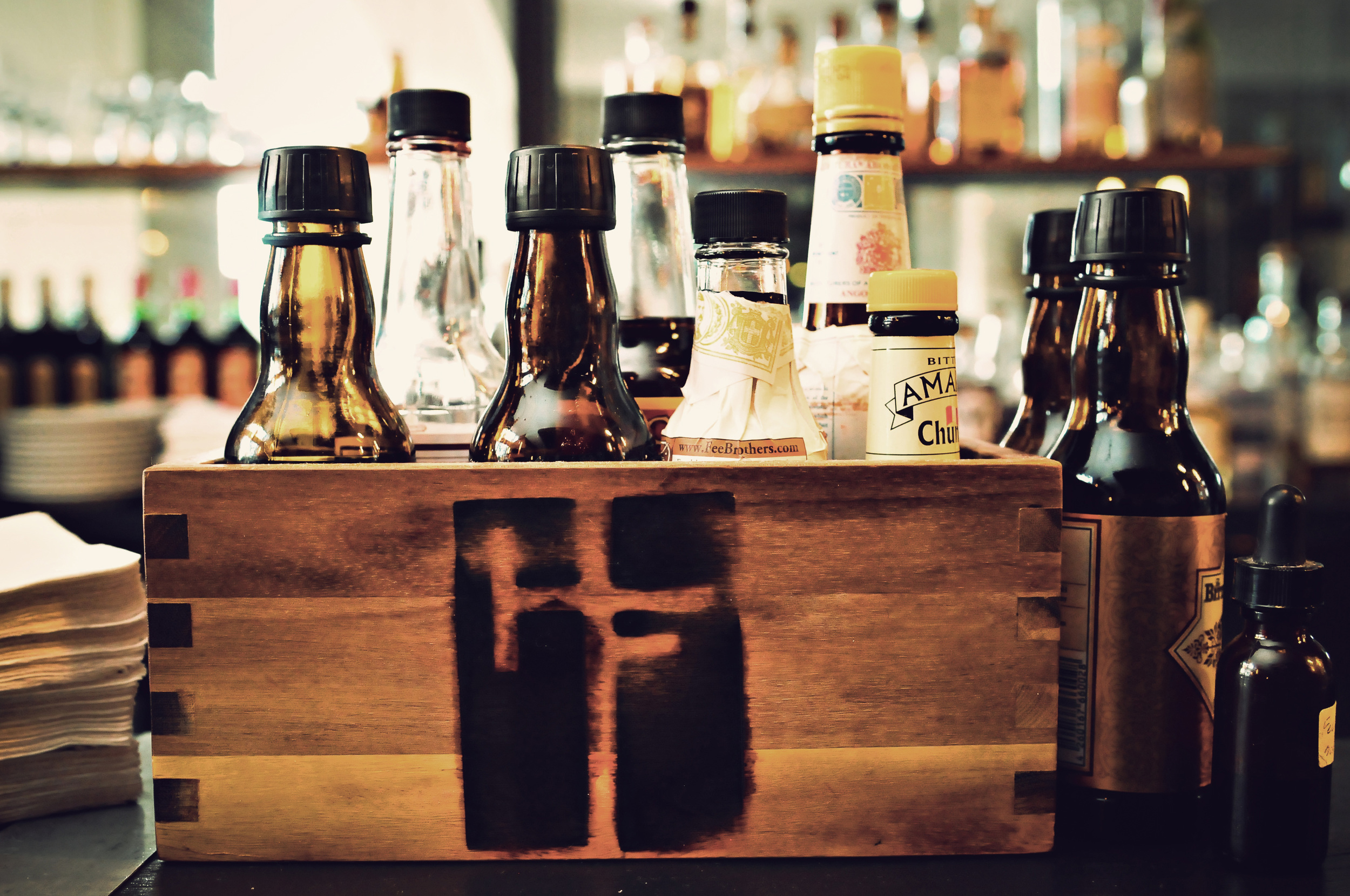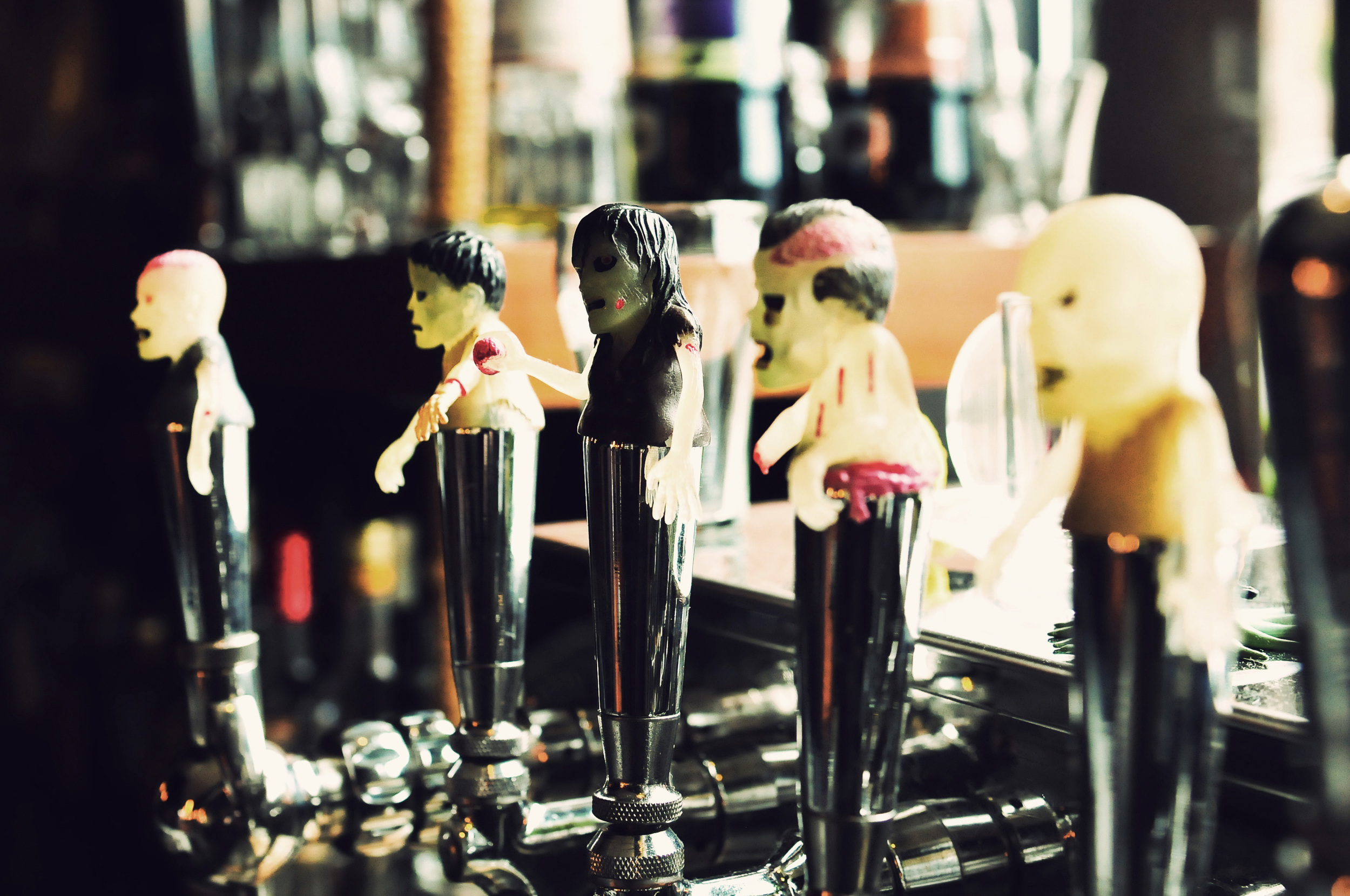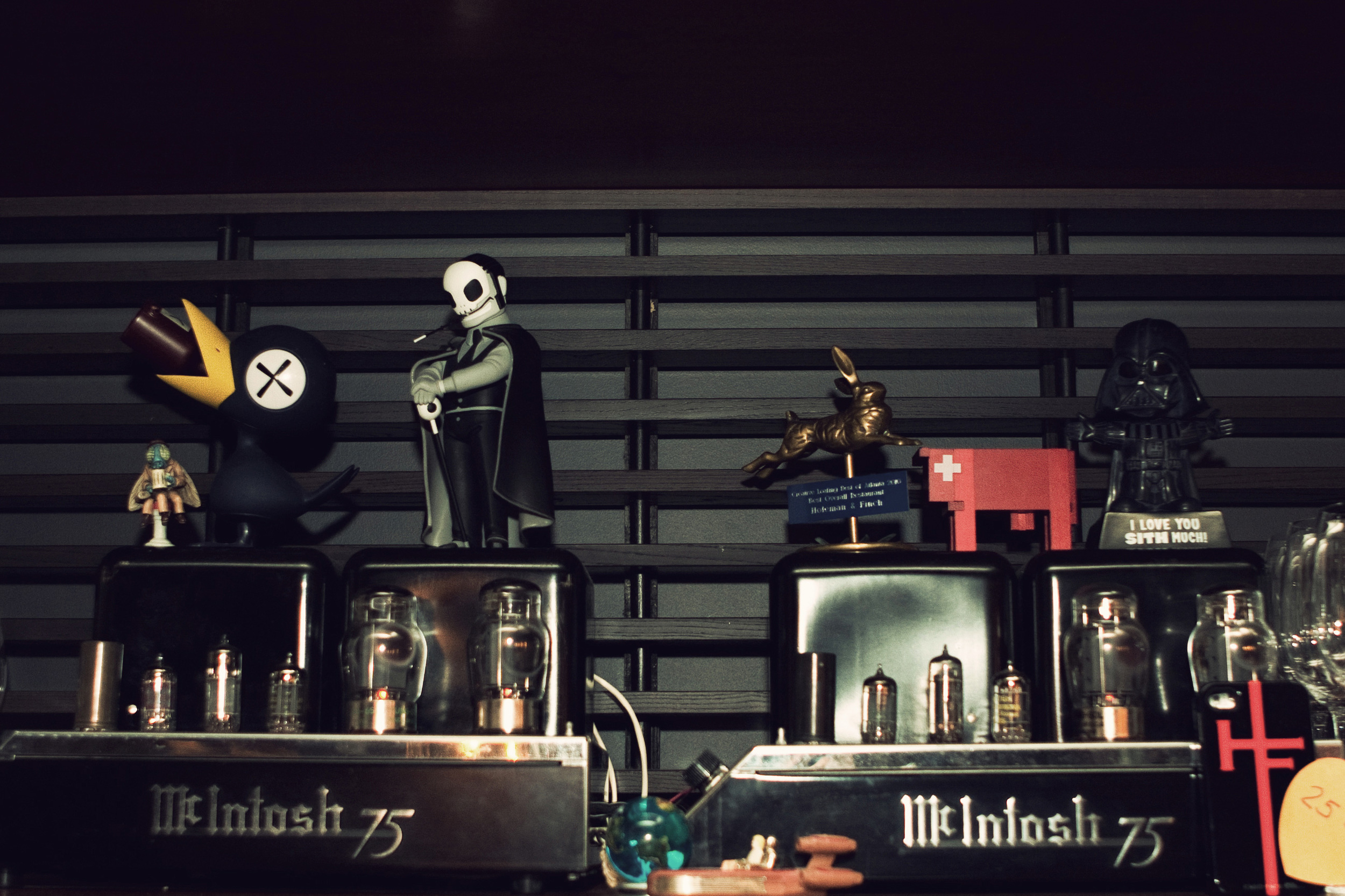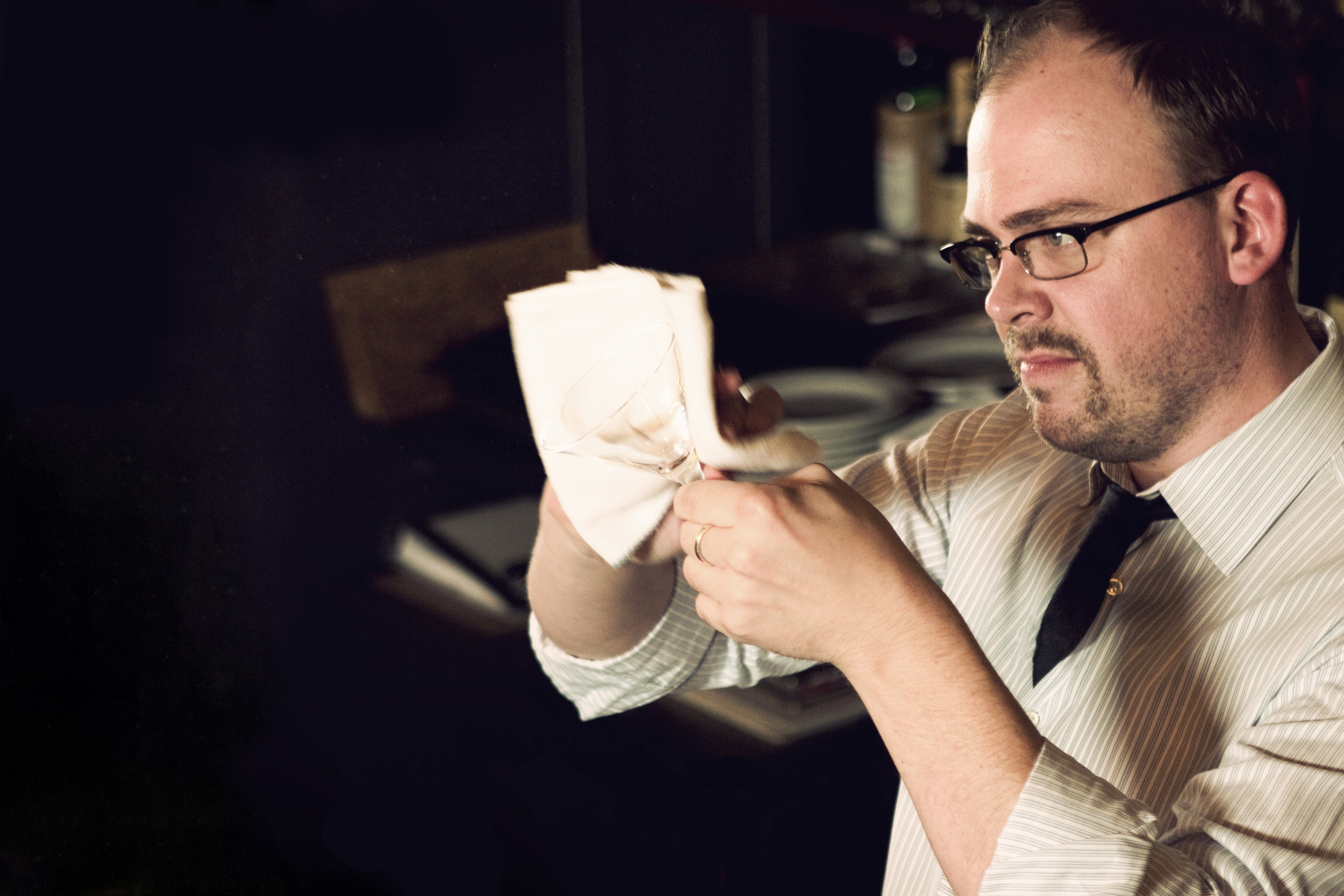The first cocktail Greg Best ever made for me, not long after Holeman & Finch Public House opened in April of 2008, was something called the Resurgens. “Resurgens,” for non-Atlantans, is the motto of our city. It’s Latin for “rising again,” the only logical watchwords for a place that had to rebuild itself from the ground up 150 years ago.
The cocktail was a riff on a Manhattan. The rye had been steeped with Georgia peaches and split peach pits, and this was no ordinary rye. He used what has become, over the last five years, the hardest-to-find Kentucky rye in existence: Van Winkle Family Reserve, 13 years old. That fact alone makes the Resurgens virtually impossible to re- create today, unless you know a “whiskey flipper” in Kentucky and have four or five Benjamins to drop on a single bottle. The vermouth was Carpano Antica Formula, the most assertive of Italian vermouths. And the bitters were Best’s own concoction, made with orange peel, peach pits, gentian and a few other bittering agents, plus Atlanta’s most famous product, Coca-Cola.
The Resurgens tasted amazing, but I was hoping for that. What bowled me over was its conceptual brilliance. The cocktail told a story. It said, “This city, our city, is as worthy as the island of Manhattan. And in this glass are a few of the beautiful things that make us who we are.”
That’s what I tasted, anyway, when I drained the last drops from that perfect little coupe glass. It made me proud to be sitting on a barstool in my hometown, Atlanta.
It’s five years later, and I’m sitting in a booth at Holeman & Finch. Greg Best is sitting across from me. This time, he’s not interviewing me, trying to figure out which cocktail to make. I’m interviewing him, trying to figure out how he can take a story and fit it into a five-ounce cocktail glass.
Here he is, head of Atlanta’s most widely known cocktail bar, the only bartender in the city to land a recipe in the famous “PDT Cocktail Book,” declaiming with authority about the culture of the South.
Then he hits me with this: “I tell people all the time, even my parents, that I’m a Yankee by birth and a Southerner by choice. And that’s a fact.”
This is weird. Greg Best ain’t from here. He’s from Poughkeepsie, N.Y.
Mind you, Poughkeepsie isn’t a bad spot at all. I’ve been there. It’s a pretty little town, only an hour and a half north of New York City if traffic’s good, 104 minutes from Grand Central Station via the Metro North train. And when you assess the richness of his cultural environment, you have to conclude that Best was luckier than the average suburban kid. He got to grow up on a steady diet of Velvet Underground tunes because the band’s lead guitarist, Sterling Morrison, was his next-door neighbor. He babysat Morrison’s kid, Tommy.
But still. Poughkeepsie?
Then this comes out of his mouth: “On the most rudimentary and basic levels, the courtesies that are played out in Southern cultural rituals are things I think the entire world could learn from. Rooting our industry in the gracious hospitality that is abundant down here, that’s where it’s at.”
Damned skippy, as they say where I grew up. Listening to him profess his love for this strange region we call home, I just can’t escape the belief that he means every word – that Greg Best has become, despite his upstate New York roots, an honest-to-God Southerner. He was just born in the wrong place.
His feelings — and how deep they run — are completely evident at Holeman & Finch Public House. He and his crew have created a place that embodies the South — its good parts — and that is simultaneously thoroughly modern.
Walk into Holeman & Finch, and you look directly into a kitchen where you’re greeted by a cornucopia. Perfectly cured pork from Black Oak Holler Farm in West Virginia or Allen Benton up in Tennessee hangs on ham rails. Fresh, Georgia-grown vegetables sit waiting for prep.
The environment is big-city bar, but the place is chock-full of ingredients whose roots run deep. The vegetables might be done up a little bit — fresh green beans fried in tempura batter instead of stewed to death with a ham hock, for instance — but when you taste the food, you taste the South. Behind the bar to your right, uniquely Southern ingredients, such as sorghum syrup, are routinely put to use in some of the most divine cocktails you’ll ever taste — or tell a story over.
Everyone loves stories, of course, but Southerners love them with a unique, fervid intensity. To Best, every bottle on every shelf behind his bar has a tale to tell.
He grabs the new Fernet amaro from the great young Colorado distillers, Leopold Bros.
“This one is amazing!” he says. “It’s a guy who went to school to be a brewer, but decided he wanted to make eaus de vie and schnapps. He started distilling, and he makes amazing craft vodka and now this amaro, the first time an herbal bitter liqueur done in the style of Italian amaro has been done outside of Italy. It’s just really exciting to get behind all that.
“It really is endless,” he continues. “I can tell stories about the sorghum we use because we know the Hughes family up in North Georgia that makes it. That’s what cocktail culture is built on, the story — that lost art of storytelling and drinking and sharing an experience with people.”
That combination, Best believes, gives the South a unique leg up. It is our ace in the hole, the thing that will eventually topple the cocktail world’s refusal to recognize Southern bars as among the world’s best.
“Often in the bar community, it is a severe sticking point with many bartenders that because all the big drink houses are still based in New York and California, those markets get the lion’s share of attention,” Best says. “The bartenders from those markets are the ones always representing the industry. It’s frustrating. But it’s getting to the point where the scales are going to tip. There’s too much going on in the South for them not to. It’s awesome. I love every minute of it.”
He’s fired up now.
“That’s what cocktail culture is built on, the story — that lost art of storytelling and drinking and sharing an experience with people.”
“A restaurant, a bar, it’s a magical place. People are taking things and turning them into something else. There’s full alchemy going on, with the ingredients and the people. I always eat at bars when I go out, and I eat out alone frequently. It’s rare when I don’t just fall ass first into an amazing conversation with a complete stranger. And that’s what it’s all about. That’s what being human is all about.”
Indeed, one of life’s finest pleasures is the first conversation with a stranger who might have a story to tell. Greg (and his entire crew, for that matter) understand something the best Southerners have known forever: that every shared story is made brighter by the right bits of lovingly prepared food and drink.
Here is The Bitter Southerner’s first prescription: Take an evening alone soon, and go be part of Mr. Best’s alchemy. Fall ass first into a chat with a complete stranger. Let your bartender be your guide. Be hospitable to all. The favor will doubtlessly be returned, many times over.
“It’s about serving others and welcoming them into your home. That’s really why I fell in love with Southern culture.”
The Bitter Southerner© 2013 all rights reserved
To contact The Bitter Southerner for any reason at all, just connect with us on Facebook.





